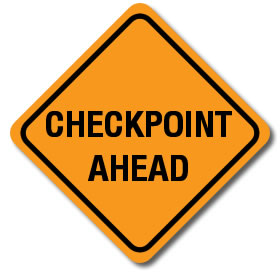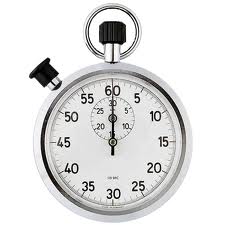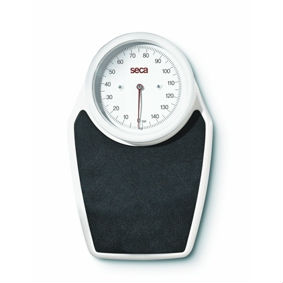20 Questions About Pre-donation Screening
-
Why do we ask donors about their lifestyle?
-
Because it makes screening more interesting.
-
It's good customer service to talk to all donors about this.
-
To establish potential risk to the recipient from blood borne viruses/diseases.
-
Because we only want sexually inactive donors.
-
This quiz assesses knowledge on pre-donation screening for blood donors, focusing on donor eligibility, age limits, and consent types. It is essential for individuals involved in health services and donor management.

Quiz Preview
- 2.
For pre-donation screening to be successful _________ body language must be used.
Explanation
In order for pre-donation screening to be successful, it is important to use positive, open, welcoming, and professional body language. This means maintaining a friendly and approachable demeanor, being attentive and engaged, and creating a comfortable and non-judgmental environment for potential donors. Using positive body language helps to establish trust and rapport with individuals, encouraging them to feel more at ease and willing to participate in the screening process. Open and welcoming body language conveys a sense of inclusivity and acceptance, making donors feel valued and respected. Professional body language demonstrates competence and credibility, instilling confidence in the screening process.Rate this question:
- 3.
The 'critical check point' means you ask the donor...
-
If they're having a nice day?
-
If they've had regular meals today?
-
For their full name, address and date of birth.
-
For their name, address and age.
Correct Answer
A. For their full name, address and date of birth.Explanation
The 'critical check point' refers to a specific step or moment in a process where it is crucial to obtain certain information. In this case, when asking the donor for their full name, address, and date of birth, it ensures that the necessary personal details are collected accurately and completely. This information is important for identification purposes and to ensure that the donor meets any age or residency requirements that may be necessary for the process at hand.Rate this question:
-
- 4.
You can only donate up 68 years of age.
-
True
-
False
Correct Answer
A. FalseExplanation
The same criteria still needs to be met. Donors can continue to donate regularly until any age (as long as a period of 2 years does not elapse after the age of 70).Rate this question:
-
- 5.
At what age can you become a donor of blood or blood components?
-
16
-
17
-
18
-
21
Correct Answer
A. 17Explanation
You are able to register before your 17th birthday.Rate this question:
-
- 6.
Before collecting the capillary sample the timer must be set for ___ seconds.
Correct Answer
15Explanation
Before collecting the capillary sample, it is necessary to set the timer for 15 seconds. This is important because setting the timer ensures that the appropriate amount of time is given for the capillary sample to be collected. This ensures accuracy and consistency in the collection process.Rate this question:
- 7.
There is an upper age limit for new donors. Your first donation can be on or before your ____th birthday.
Correct Answer
66Explanation
As long as you meet all the other criteria.Rate this question:
- 8.
What is the DHCQ?
-
Donor Health Check Quiz
-
Donation Health Check Questionnaire
-
Donor Health Check Questionnaire
Correct Answer
A. Donor Health Check QuestionnaireExplanation
The term used for the form is DHC (Donor Health Check). The DHCQ is specific to the questionnaire side of the form.Rate this question:
-
- 9.
What is the minimum weight for a donor to be able to donate?
-
9st/57kg
-
8st/51kg`
-
7st 12lb/50kg
-
7st/44.5kg
Correct Answer
A. 7st 12lb/50kgExplanation
Females under 20 years of age will need to meet a specific blood volume (worked out by their height and weight) in order to be eligible to donate. For this particular group being over 50kg is not enough even if they have donated before as weight is a changeable factor.Rate this question:
-
- 10.
What barriers to communication might you experience during pre-donation screening? (Tick all that apply)
-
Hearing impairment
-
Capacity
-
Language
-
Understanding
Correct Answer(s)
A. Hearing impairment
A. Capacity
A. Language
A. UnderstandingExplanation
Take the time to discuss 'capacity' with your trainer.Rate this question:
-
- 11.
What 3 ways might donors give their consent to donate during the pre-donation screening process?
-
Implied
-
Written
-
Unanimous
-
Verbal
Correct Answer(s)
A. Implied
A. Written
A. VerbalExplanation
Implied - when they offer their finger to check their iron.
Written - the donor consent signed on the DHC.
Verbal - if they say that they are here to donate or want to donate.Rate this question:
-
- 12.
Name a way in which we adhere to confidentiality at pre-donation screening?
Correct Answer(s)
screens
radio
quiet speaking voice
space between screens
musicExplanation
At pre-donation screening, we adhere to confidentiality by using screens to provide privacy between donors, playing music to mask any conversations, maintaining a quiet speaking voice to prevent the disclosure of personal information, and ensuring there is enough space between screens to prevent any accidental overhearing of sensitive information.Rate this question:
- 13.
The apparatus used to prick the donor's finger is called a pastette.
-
True
-
False
Correct Answer
A. FalseExplanation
It's called a lancet. The pastette is the small pipet instrument used to transfer the blood from the finger to the copper sulphate.Rate this question:
-
- 14.
Donors need to be 'fit and well' on the day of donation to...(Tick all that apply)
-
Prevent the risk of them making the staff unwell.
-
Reduce the likelihood of them becoming ill following donation.
-
Minimise the likelihood of collecting a donation containing an infection.
-
Keep the recipient safe with a quality product.
Correct Answer(s)
A. Reduce the likelihood of them becoming ill following donation.
A. Minimise the likelihood of collecting a donation containing an infection.
A. Keep the recipient safe with a quality product.Explanation
Donors need to be 'fit and well' on the day of donation to reduce the likelihood of them becoming ill following donation. This is important because if a donor is already unwell, their immune system may be compromised and they may be more susceptible to infections or complications after donating blood. Additionally, donors need to be 'fit and well' to minimize the likelihood of collecting a donation containing an infection. If a donor is sick, there is a higher risk of transmitting the infection through the donated blood. Lastly, being 'fit and well' ensures that the recipient receives a safe and quality product, as blood from a healthy donor is less likely to pose any risks or complications.Rate this question:
-
- 15.
What 3 of the following are potential travel risks from certain countries?
-
Chikungunya virus (Chick V)
-
Malaria
-
T Cruzi
-
East Nile virus
Correct Answer(s)
A. Chikungunya virus (Chick V)
A. Malaria
A. T CruziExplanation
It's West Nile virus we are concerned aboutRate this question:
-
- 16.
When interviewing a donor a number of verbal skills are used. What types of questions are asked? (Tick all that apply)
-
Open
-
Closed
-
Leading
-
Probing
Correct Answer(s)
A. Open
A. Closed
A. ProbingExplanation
Try to avoid leading questions as they tend to influence their answer.Rate this question:
-
- 17.
The green traffic light card indicates that the donor is ok to donate and needs their iron checking.
-
True
-
False
Correct Answer
A. TrueExplanation
The green traffic light card indicates that the donor is okay to donate and needs their iron checking. This suggests that the donor has met the necessary requirements and is eligible to donate blood. The mention of needing their iron checked implies that iron levels are an important factor in determining a donor's suitability. Therefore, the statement is true as it accurately describes the meaning of the green traffic light card in relation to blood donation.Rate this question:
-
Quiz Review Timeline (Updated): Mar 20, 2023 +
Our quizzes are rigorously reviewed, monitored and continuously updated by our expert board to maintain accuracy, relevance, and timeliness.
-
Current Version
-
Mar 20, 2023Quiz Edited by
ProProfs Editorial Team -
Mar 06, 2015Quiz Created by
Anashrub
How Much You Know About World Blood Donor Day?
Are you ready to take this quiz to know how much you know about World Blood Donor Day? Every year many countries around the world celebrate this special day known as World Blood...
Questions:
10 |
Attempts:
163 |
Last updated:
Nov 16, 2023
|
Blood Donation Eligibility Quiz
Are you planning to donate blood? Well, that's a very good decision, but before you do that, we suggest you take this '
blood donation eligibility quiz and find out...
Questions:
10 |
Attempts:
437 |
Last updated:
Apr 07, 2022
|
BLOOD BANK : Blood Product & Blood Group Systems Quiz: Exam!
This 'Blood Bank: Blood Product & Blood Group Systems Exam' assesses knowledge crucial for safe blood donation and management. It covers donor eligibility, deferral criteria, and...
Questions:
120 |
Attempts:
1762 |
Last updated:
Sep 04, 2024
|
BB - Donor & Component Prep
The 'BB - Donor & Component Prep' quiz assesses knowledge on blood donation protocols, including storage conditions for blood components, donor eligibility, and risks associated...
Questions:
59 |
Attempts:
474 |
Last updated:
Mar 20, 2023
|
Blood Bank ASCP Blood Products
This quiz on Blood Bank ASCP Blood Products assesses knowledge on blood donation criteria, deferral reasons, and appropriate blood products for specific medical conditions. It is...
Questions:
7 |
Attempts:
4947 |
Last updated:
Aug 27, 2024
|
Blood Donation Quiz Questions And Answers
Have you ever donated blood? Do you have a good understanding of everything related to blood donation? If yes, then you must try the 'blood donation quiz' given below....
Questions:
10 |
Attempts:
11261 |
Last updated:
Apr 03, 2023
|
 Back to top
Back to top
















